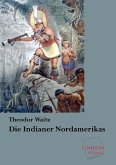The status of American Indians has long been rooted in a view of Indians as members of indigenous polities with distinct cultures. Often, these cultures have been characterized by dominant colonial authorities as 'savage' or 'primitive,' and it is the discipline of anthropology that, willingly and wittingly, or not, helped to make the idea of 'the primitive' into a social reality. Consequently, the 'tribal slot' inhabited by American Indians - with both its benefits and its oppressions - is difficult to imagine without the discipline of anthropology.
A Companion to the Anthropology of American Indians contains 27 original contributions by leading scholars who work actively as researchers in American Indian communities, or on the topic of American Indians. The book summarizes the state of anthropological knowledge of Indian peoples, as well as the history that got us to this point.
Treated here is the full range of American Indian anthropology: from ecological and political-economic questions to topics concerning religion, language, and expressive culture. Each chapter provides definitive coverage of its topic while situating ethnographic and ethnohistorical data in a broader framework. This framework includes the linked histories of American Indians and anthropology, the role of continued native resistance in changing both the situation of Indian people and the content of anthropology, and the potential role of anthropology in an anti-colonial project that speaks to the pressing concerns of contemporary Indians.
A Companion to the Anthropology of American Indians contains 27 original contributions by leading scholars who work actively as researchers in American Indian communities, or on the topic of American Indians. The book summarizes the state of anthropological knowledge of Indian peoples, as well as the history that got us to this point.
Treated here is the full range of American Indian anthropology: from ecological and political-economic questions to topics concerning religion, language, and expressive culture. Each chapter provides definitive coverage of its topic while situating ethnographic and ethnohistorical data in a broader framework. This framework includes the linked histories of American Indians and anthropology, the role of continued native resistance in changing both the situation of Indian people and the content of anthropology, and the potential role of anthropology in an anti-colonial project that speaks to the pressing concerns of contemporary Indians.
"Highly recommended."
Choice
"Biolsi has produced a rich and comprehensive overview of the field by drawing on senior figures and younger scholars, academics and public intellectuals, and Native and non-Native voices. This volume is required reading for anyone wishing to enter, revisit, or advance the practice of Native American anthropology."
Philip Deloria, University of Michigan
"This invaluable volume offers the perspectives of individuals whose intellectual, social, emotional, and pragmatic commitment to better understanding our world have earned the respect and attention of Native and non-Native audiences."
Tsianina Lomawaima, University of Arizona
"This is a sterling compilation, expertly edited, that interrogates the dynamic and often contentious relationship between indigenous peoples and anthropologists."
David Wilkins, University of Minnesota
Choice
"Biolsi has produced a rich and comprehensive overview of the field by drawing on senior figures and younger scholars, academics and public intellectuals, and Native and non-Native voices. This volume is required reading for anyone wishing to enter, revisit, or advance the practice of Native American anthropology."
Philip Deloria, University of Michigan
"This invaluable volume offers the perspectives of individuals whose intellectual, social, emotional, and pragmatic commitment to better understanding our world have earned the respect and attention of Native and non-Native audiences."
Tsianina Lomawaima, University of Arizona
"This is a sterling compilation, expertly edited, that interrogates the dynamic and often contentious relationship between indigenous peoples and anthropologists."
David Wilkins, University of Minnesota








